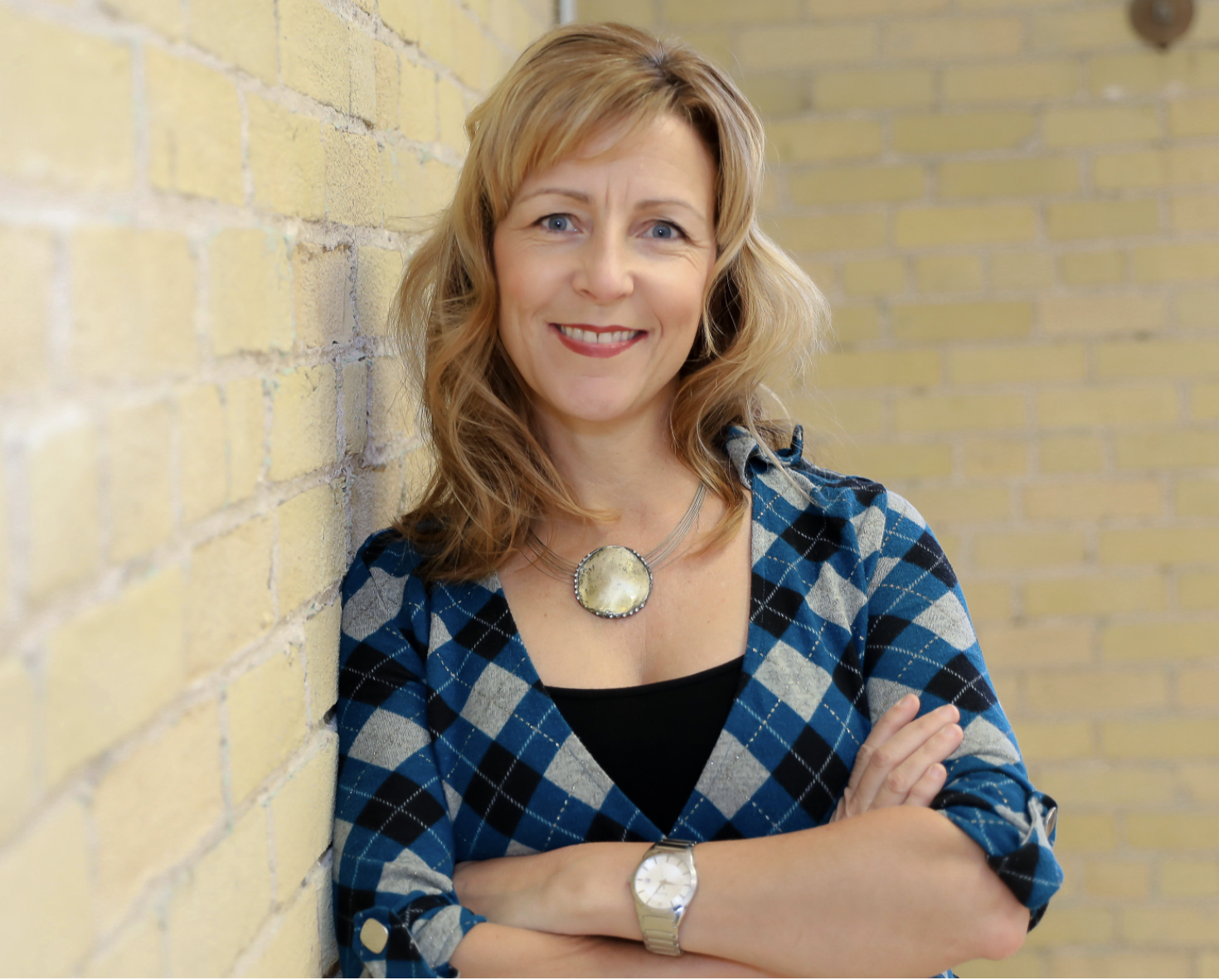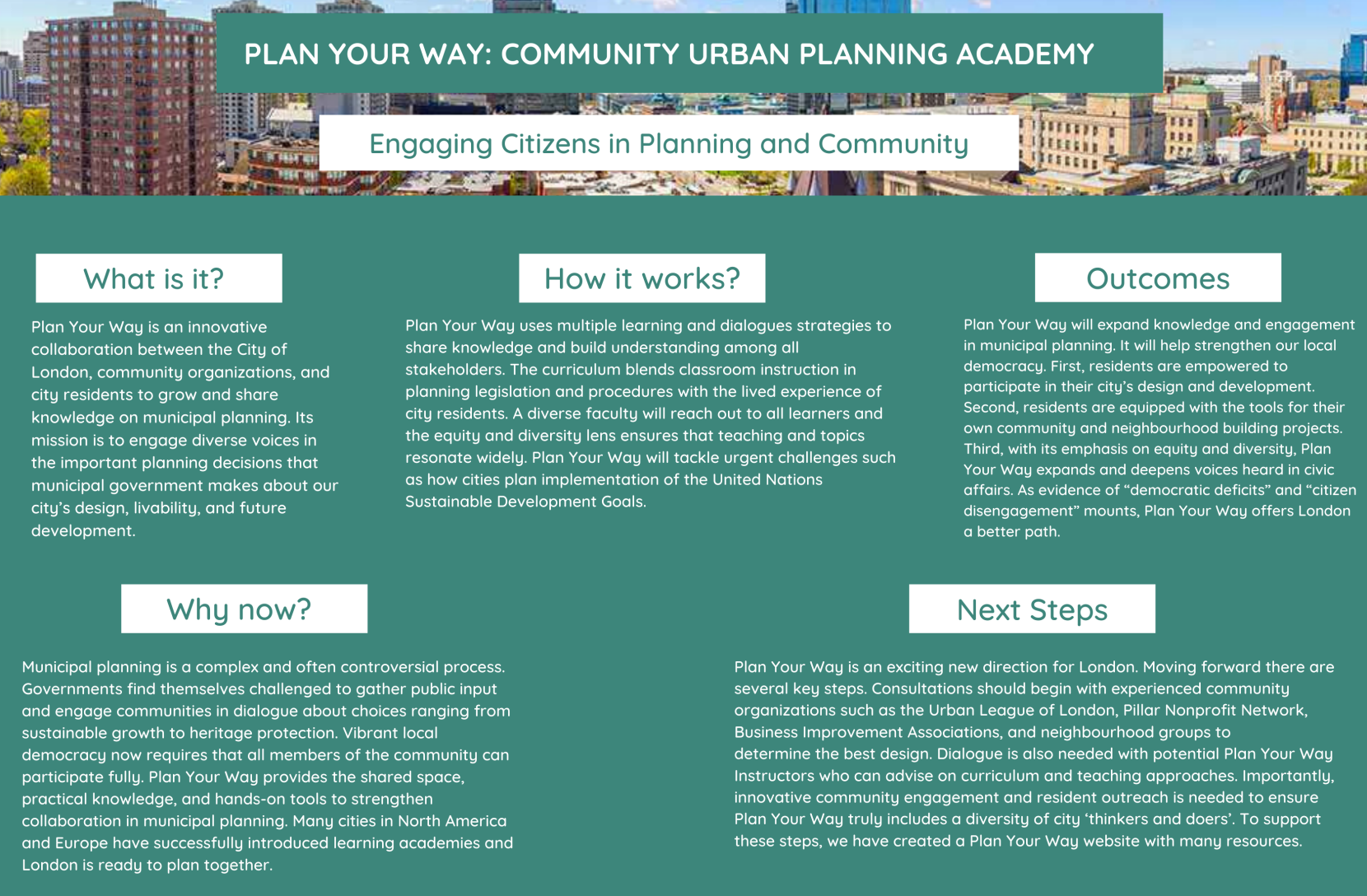Plan Your Way
Londoners are engaged and have a sense of belonging in their neighbourhoods and community.
We would like to acknowledge the history of the traditional territory and honour the longstanding relationships of the three local First Nations of this land and place in Southwestern Ontario. The Attawandaran once settled this region alongside the Anishinaabeg and Haudenosaunee, and used this land as their traditional hunting grounds. The three longstanding Indigenous groups of this geographical region are: The Anishinaabeg, The Haudenosaunee and the Lunaapeewak.
We would also like to recognise the three First Nations communities neighbouring the City of London: Chippewas of the Thames First Nation, Oneida Nation of the Thames and Munsee-Delaware Nation.
We invite you to reflect upon this land acknowledgement, what it means to your personal story, and what the Truth and Reconciliation Commission’s Calls to Action mean to you.
Welcome to our project
We are students from Huron University College in London, ON participating in the first-ever partnership between the Governance Leadership and Ethics capstone course, the City of London, and CityStudio. Together we sought to develop a model to improve citizen engagement and community understanding of Urban and City Planning. The final product – Plan Your Way – is a program where citizens of London can learn the processes involved in City planning, have a voice in the community planning process, and feel valued and engaged in their city.
As a team of nearly twenty students and professors we conducted extensive research to better understand existing processes in London for engaging members of the public, the perceptions of average citizens, and methods for achieving meaningful partnerships for the betterment of London’s urban planning department. Some key takeaways from our survey of Londoners demonstrate that 62% of respondents knew “nothing at all” about the city planning process, while 36.2% said they know “bits and pieces” of it. With this poignant information in mind, we set off to create a number of recommendations for the City of London to aid them in the process of creating a model for shifting the status quo.

context and rationale
This section identifies key observations specific to London’s history and offers a bold path forward that moves away from bureaucratic hierarchies and into collaboration between stakeholders at all levels, in all sectors, and all demographics to rebuild trust from the ground up.
Structure
We have carefully analyzed and researched many different planning academies across the world. Plan You Way has three distinct areas in which we hope to help the public: Knowledge Building, Capacity Building, and Implementation. We aim to specialize in both online and in-person communication. To maximize the engagement across all of London We will lean on the expertise of community leaders to bolster the efforts of Indigenous, Black, and other marginalized communities, and to provide them the platform for effective civic engagement. These efforts will create the foundation for Plan Your Way for years to come.
Curriculum and teaching
The Plan Your Way curriculum will cover topics about Localizing Sustainable Development Goals, Equity Diversity & Inclusion, Indigenous Communities, and Urban Planning. This broad spectrum of topics will provide a comprehensive knowledge of ‘hot button’ topics that are pressing in our community. Our teachings will be offered both in-person and online for maximum participation. The topics covered will also vary in delivery where we will be in the classroom, reviewing case studies, or going in hands-on interactive trips to surrounding communities. Collaboration with community leaders will be encouraged to broaden education goals but overall community knowledge.
Civic engagement
Throughout our research process we identified several key takeaways for civic engagement with the following principles at the core: Accessibility, Transparency, and Trust. It is imperative that when seeking new ways to tackle urban challenges, city planners and community partners use these guiding principles in order to achieve meaningful sustainable engagement from the community.
international comparison
Working collaboratively over Zoom this year was a challenge for all students and professors. For a handful of International students participating from different parts of the world, the barriers were even greater. However, this provided a unique opportunity for our class to learn, through our international student colleagues, a variety of flavours of civic engagement throughout the world.it.
Photo Voice
PhotoVoice is a method of research that encourages us to document, reflect upon, and communicate issues of concern within the community while stimulating social change. It’s a form of data collection that recognizes there is more than one way to express and interpret social problems. PhotoVoice is about enhancing the way in which we engage with our towns and strengthening our interpretation by looking at pictures to understand and visually articulate how we interact with the places we live. The method creates a platform whereby creative, equitable, and accessible forms of engagement enter our collective consciousness.
Our professors

Neil Bradford
Coordinator, Governance Leadership and Ethics

Michelle Baldwin
Professor, Governance Leadership and Ethics
plan your way hubub Video
